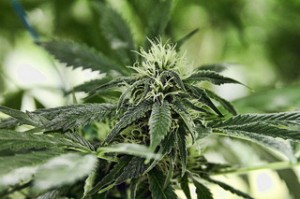Legal Marijuana and the Mexican Drug Cartels

 By Phillippe Diederich, Voxxi
By Phillippe Diederich, Voxxi
Now that Marijuana is supposed to turn legal in both Washington State and Colorado, it will be interesting to see how supply and demand, violence, arrests and tax revenues change in both states. It will also be interesting to see how Mexican drug cartels deal with this new set up.
 According to the New York Times, the main issue with states having such laws, is that they clash with Federal laws. One of the impediments of the new laws legalizing marijuana in these states is that they can be blocked by lawsuits. So we’ll have to wait and see how things develop.
According to the New York Times, the main issue with states having such laws, is that they clash with Federal laws. One of the impediments of the new laws legalizing marijuana in these states is that they can be blocked by lawsuits. So we’ll have to wait and see how things develop.
According to the new laws, it will be legal to carry up to an ounce of pot and smoke recreationally, but not in public. People will be allowed to grow up to six plants. You will also have to be over 21-years old to smoke, and it will be against the law to drive while under the influence. Proponents of the law believe thousands of small-scale arrests for possession of marijuana will stop, and that taxing marijuana will bring in millions in revenue to the cash strapped states.
But how will the Mexican drug cartels, which supply millions of tons of marijuana to U.S. consumers every year, deal with Washington and Colorado? Well, according a study by the Mexican Institute of Competitiveness (IMCO) and reported by In Sight Crime, profits could go down by 30 percent for the Mexican drug cartels. IMCO estimates the loss at almost $3 billion, and that the Sinaloa Cartel would be hardest hit by the new laws, with profits down by 50 percent.
Other states may follow Washington and Colorado’s example
If other states see the experiment of legalized pot working to the benefit of Washington and Colorado, they just might follow suit in the next few years. Too much effort and too much money goes into keeping marijuana illegal. According to reports, it will be cheaper to buy home-grown pot than marijuana smuggled into the state by drug cartels.
But the cartels run like real companies. They have always adapted to market changes to continue to make astronomical profits. When the U.S. cracked down on methamphetamine labs in this country, the cartels jumped at the opportunity to profit. They now produce and smuggle most of the meth consumed in the U.S. They also smuggle coke and heroin into the U.S. According to the 2010 National Survey on Drug Use and Health, Marijuana is the most commonly used drug in the U.S. with 17 million users, far ahead of the curve of cocaine, heroin and meth.
The Mexican drug cartels still have to satisfy the demand for marijuana from the other 48 states where marijuana is illegal, and they will use all methods possible: smuggling pot via underground tunnels, driving jeeps over the border, or as it was discovered recently in Agua Prieta, using a catapult to propel packages of pot across the border to Arizona.
Just a few days ago, U.S. Border Patrol agents discovered 33 cans packed with marijuana in a field in San Luis, Arizona near the U.S.-Mexico border, with a total weight of 38.5 kilos. It turns out the cans had been shot from a pneumatic canon from Mexicali, Baja California. Drug smugglers are quite ingenious, and as long as we continue to have a demand for illegal marijuana in the U.S., we’ll keep seeing these peculiar methods of smuggling pot across the border.
This article was first published in Voxxi.
Phillippe Diederich is a bilingual writer and photographer born in the Dominican Republic and raised in Mexico City and Miami. His photography has appeared in The New York Times, Timemagazine, U.S. News and World Report and other national publications. His non-fiction has been published in the Traveler’s Tales Anthology, Cuba; Cigar Aficionado; The Miami New Times and The Dallas Morning News. He blogs about Latino issues for VOXXI. Diederich is based in Southwest Florida.
[Photo by Coleen Danger]
